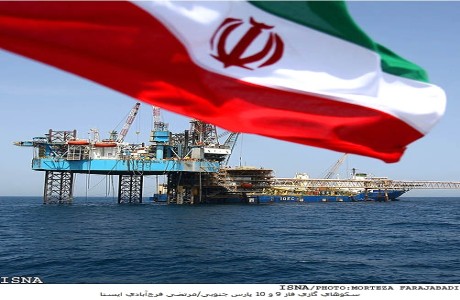Major buyer South Korea cut imports of Iranian crude in the first two months of 2012, joining Taiwan and South Africa as the latest in a growing group of buyers bowing to international pressure on the Islamic Republic.
A quartet of China, India, Japan and South Korea are the four biggest buyers of Iranian crude in Asia and have either made a cut in imports or pledged to do so. Iran sells most of its 2.6 million barrels per day (bpd) of exports in Asia.
The United States on Tuesday exempted Japan and 10 EU nations from financial sanctions because they have significantly cut purchases of Iranian crude, but left out ally South Korea and Iran’s top customers China and India.
India’s oil refiners are expected to cut Iranian crude imports April in line with the reductions which secured Japan’s waiver.
They plan to pay in rupees, but the failure of a delegation of Indian traders to Iran to clinch any commodities deals raised questions over the viability of a mechanism to pay for 45 percent of oil imports in rupees and increase exports to redress the trade imbalance.
South Korea’s refiners were cutting imports to ensure the government could petition the U.S. for a sanctions waiver, a source at South Korea’s economy ministry said on Thursday.
“South Korea is cooperating at a fundamental level with the U.S. regarding Iranian crude oil imports,” the source said. “I think refiners are making efforts to help South Korea receive an exemption from the United States.”
The world’s fifth-largest oil importer, South Korea bought 15 percent less Iranian crude in the first two months of the year compared with the same period in 2011, even though overall crude imports increased by 3.4 percent on the year.
Iranian crude imports fell to 12.9 million barrels, or 215,483 barrels per day (bpd), in January and February from 15.04 million barrels, or 254,831 bpd, a year earlier, state-run Korea National Oil Corp (KNOC) said on Thursday.
South Africa has suspended almost all its oil imports from Iran, a senior diplomat said on Thursday.
Iran is South Africa’s leading crude supplier, accounting for about 29 percent of oil imports to Africa’s biggest economy, or 98,000 bpd according to the U.S. Energy Information Administration.
Buyers of Iranian crude will face U.S. sanctions if they fail to cut purchases significantly. The U.S. is using sanctions to put pressure on Iran to halt its nuclear programme, which Washington says Tehran is using to develop weapons. Iran says it needs nuclear-generated power.
EU sanctions have also made buying Iranian crude more difficult as they penalise insurers for indemnifying Iranian crude cargoes anywhere in the world.
Japan’s imports in February could fall by as much 70 percent on average for 2011 due to difficulty in getting insurance, the Nikkei daily said on Thursday.
A delegation from Seoul will meet U.S. officials soon to discuss the depth of the cut in Iranian crude imports. If Japan is any measure, the cut would need to be 15-22 percent.
Carlos Pascual, U.S. State Department Special Envoy and Coordinator for International energy Affairs, held up Japan’s cut as an example for other nations but equally declined to set a benchmark that countries could follow to secure an exemption.
With the reduction in January and February, South Korea has reversed what was a trend toward increasing Iranian oil purchases. In 2011, its Iran imports rose 20 percent.
Taiwan will halt its imports from July, a source at state-run refinery CPC said on Thursday.
Taiwan is a small buyer of Iranian crude, purchasing between 19,000 and 22,000 bpd. It was on a list of Iranian crude buyers potentially subject to sanctions, a U.S. State Department official said on Wednesday.
Turkey said on Wednesday it could still get a waiver from Iran sanctions, despite not being named on the list of exempted nations released by Washington. It imports around 200,000 barrels per day of oil from Iran, around 7 percent of Tehran’s oil exports.
South Korea has had no problems finding oil to substitute for Iranian imports, its finance minister Bahk Jae-wan told reporters on Thursday.
“We already have secured enough alternative oil,” Bahk said after an industry event.
Taiwan had no plans to ask for the U.S. waiver to sanctions, as it would simply buy crude from other countries, CPC President Lin Mao-wen told Reuters on Thursday.
Top oil exporter Saudi Arabia said this week it would plug any shortage in supplies to the market and was ready to raise output to full capacity of 12.5 million bpd if needed.
South Korea sourced 87 percent of its total crude imports in the first two months of this year from the Middle East — mainly Saudi Arabia, Kuwait, Qatar, the United Arab Emirates and Iran — up from 85 percent a year earlier, KNOC data shows.
Cutting imports from Iran might drive up the country’s overall import costs, said Son Young-joo, energy analyst at Kyobo Securities Co Ltd.
“I don’t think the shortage of Iran crude oil supply itself will do much harm to South Korea,” he said. “The only problem I see is the cost, as Iran crude oil was about $2 to $3 a barrel discounted compared to other countries’ products.”



